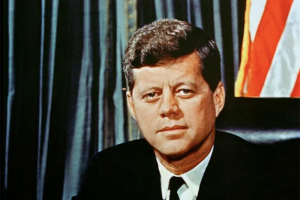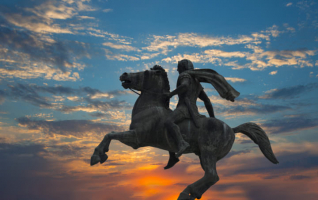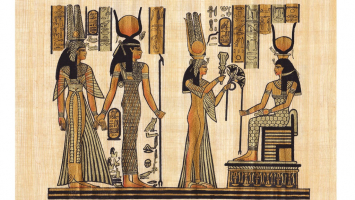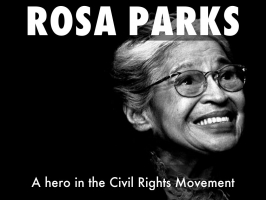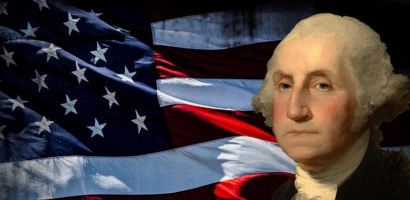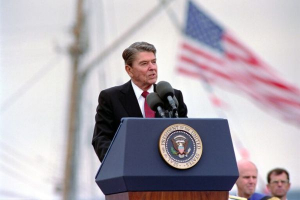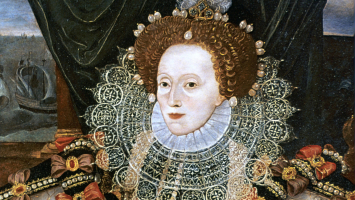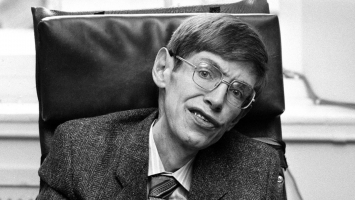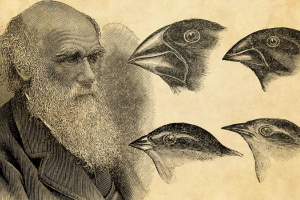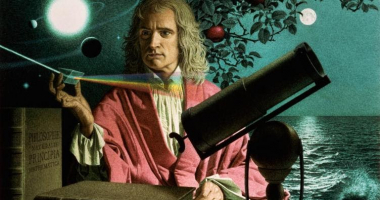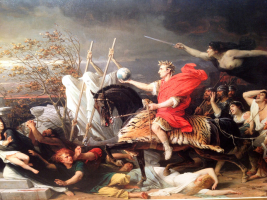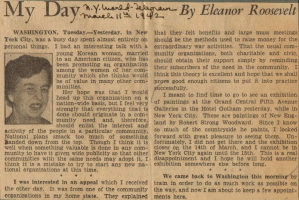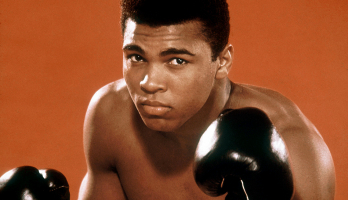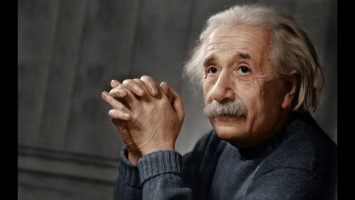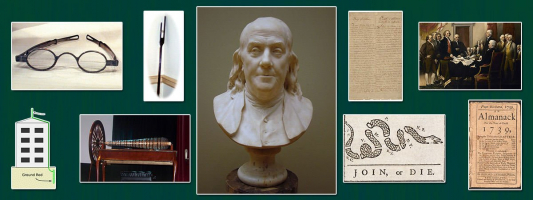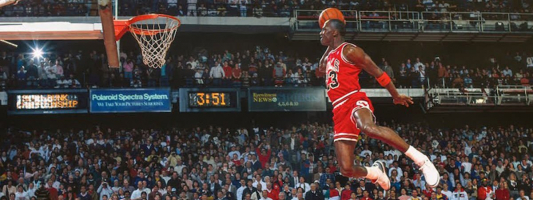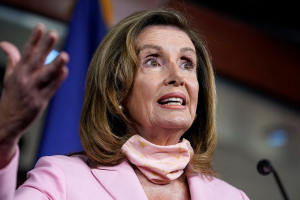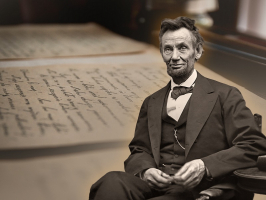Top 9 Major Accomplishments of John F. Kennedy
John Fitzgerald Kennedy, better known as Jack or JFK, was elected 35th President of the United States and served from January 1961 until November 1963, when he ... read more...was assassinated. He led America out of recession and implemented a number of significant domestic reforms. He was involved in several key international events, the most famous of which was the Cuban Missile Crisis, which threatened nuclear war between the United States and the Soviet Union. Study the major accomplishments of John F Kennedy and achievements to learn why he is still famous and why historians rate him highly as a president.
-
Kennedy demonstrated great dedication to reviving human space exploration. Yuri Gagarin, a Soviet cosmonaut, set records as the first man to journey into space in April 1961, when he used his Vostok 1 capsule to complete a full orbit of the earth. A Mercury test capsule sits atop a Redstone booster prior to a test launch at the Redstone Arsenal circa 1960. NASA. 1. America was never really behind the Soviets in the Space Race.
To counter this magnificent feast of their competitor nation, Kennedy delivered a strong oration in what would become known as the famous race to the moon, challenging Americans to dare to put US astronauts on the moon's surface in the next ten years. True to the president's words, the US manned Apollo missions successfully landed American astronauts on the moon's surface on July 20, 1969. Kennedy's life was tragically cut short before he could see the rewards of his lunar mission.
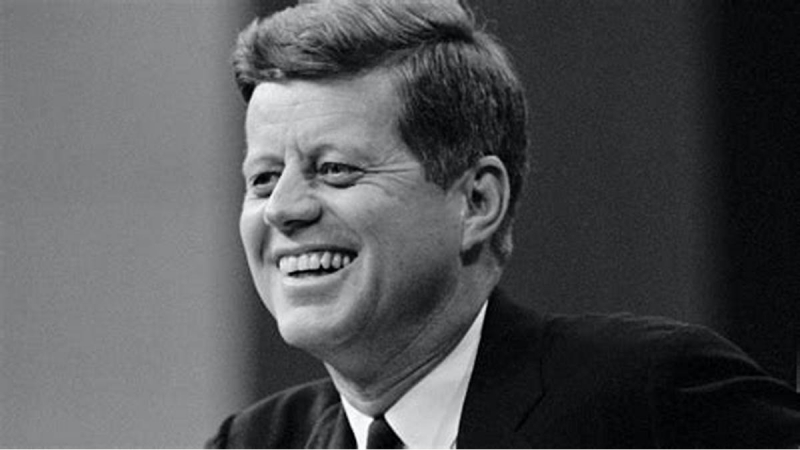
Source: PEDESTRIAN.TV 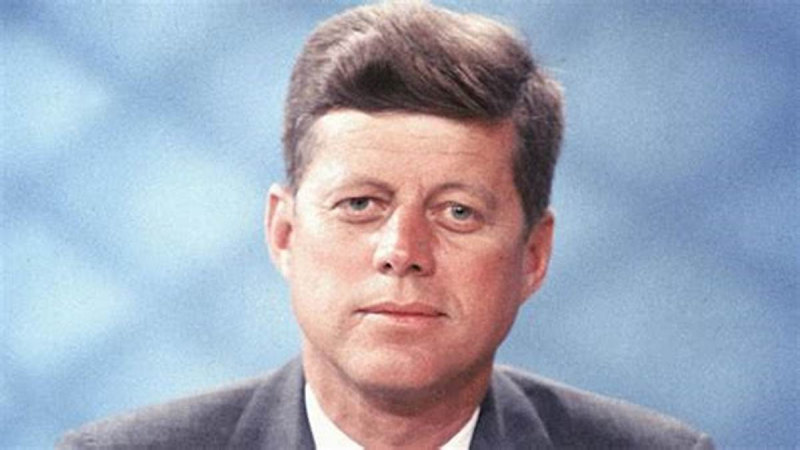
Source: History -
Kennedy's presidency fell during the tense days of the Cold War between the United States and the Soviet Union. Kennedy was sworn in as America's 35th president in January 1961, after defeating Richard Nixon in a close presidential contest. Kennedy set records as one of the youngest US presidents at the age of 43.
After a nearly ten-year tenure as a senator, Kennedy decided to run for president in order to lead the United States amid the Cold War. When Kennedy learned that Russia had surreptitiously put nuclear-armed ballistic missiles in Cuba, he intervened in time to prevent America and the rest of the world from experiencing a catastrophic nuclear war. Kennedy made a wise and calm judgment concerning the oncoming danger to end the Cuban Missile Crisis. He accomplished this by imposing a naval blockade that effectively prevented the Soviets from transporting further combat machines to Cuba. The globe lived in fear for more than a week as the world's superpowers engaged in fierce clashes.
An agreement was finally achieved after a series of diplomatic meetings between the Soviet leader (Nikita Khrushchev) and F. Kennedy. The Russians were forced to dismantle their missile bases in Cuba as a result of this. Kennedy also stated that he would not invade Cuba. Additionally, American missiles stationed in Turkey were to be decommissioned. Kennedy's crowning achievement came in June 1963, when he signed the Nuclear-Test-Ban Treaty with the Soviet Union.
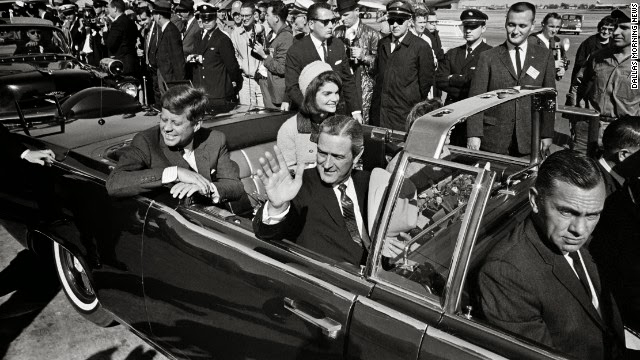
Source: vintag.es 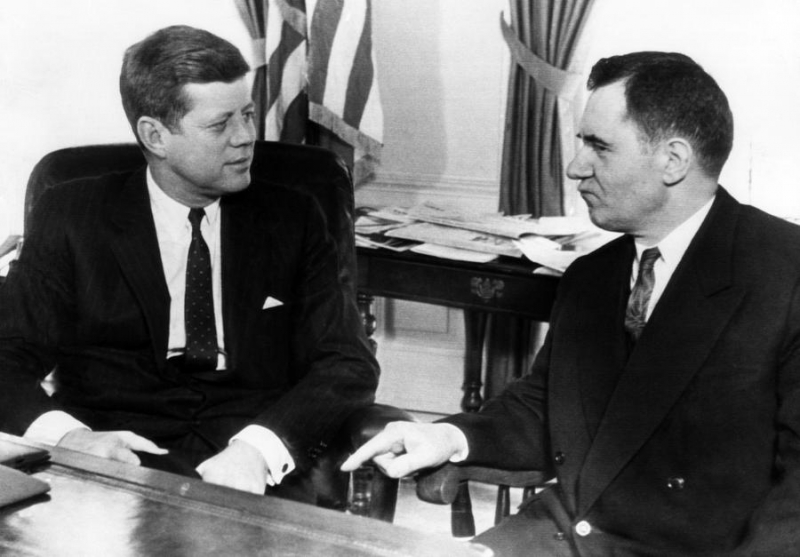
Source: Fine Art America -
John F. Kennedy had demonstrated extraordinary bravery and patriotism even before he became president. Kennedy was all set to join the US Army, but he was turned down due to his lack of physical fitness. Kennedy didn't let the rejection stop him from entering the US Naval Reserve in 1941.
When World War II broke out, Kennedy was commanding an American torpedo boat in the treacherous Pacific waters. He attempted to strike a Japanese vessel approaching him. Unfortunately, the Japanese responded by blowing out Kennedy and his ten crew into the ocean, shredding their torpedo boat.
In the face of this trouble, Kennedy exhibited extreme bravery by refusing to surrender. He helped his wounded crew members to swim to safety on a deserted island, where they were rescued 6 days later. For his act of heroism, the US Navy awarded Kennedy with a Marine Corps Medal. In addition to that, for his injuries, he was also given the Purple Heart Medal.
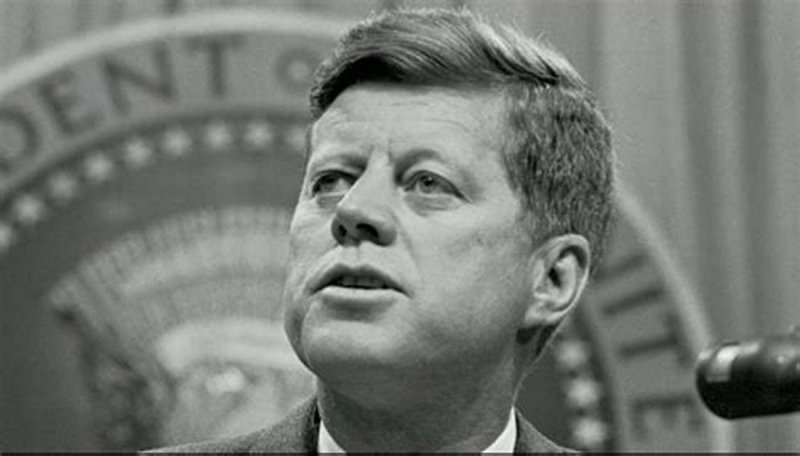
Source: edu.passionriver.com 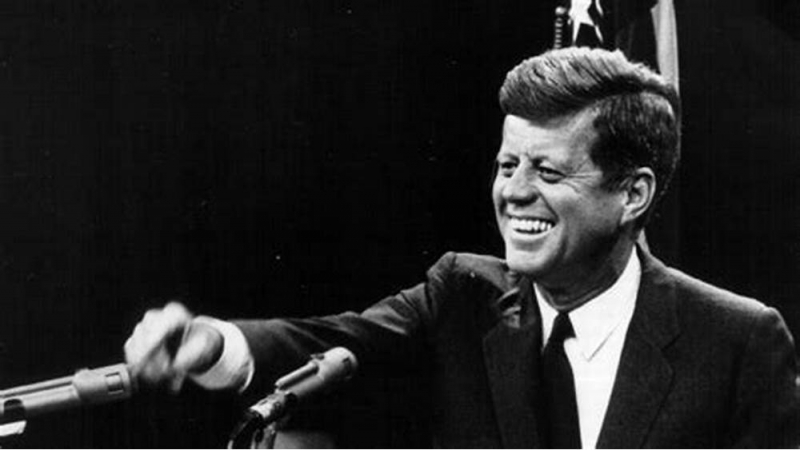
Source: edu.passionriver.com -
In 1960, John F. Kennedy was elected to the 44th quadrennial presidential election. He was a member of the Democratic Party, and he defeated his Republican opponent, Richard Nixon. Kennedy ran a well-organized and well-funded campaign that helped him win, and before becoming President of the United States, he served as a Senator representing Massachusetts. Kennedy was President from 1961 to 1963, when he was assassinated.
John F. Kennedy beat incumbent Vice President Richard Nixon to become the 35th President of the United States in the 1960 presidential election. He was and still is the youngest president of the United States, having been elected at the age of 43. Theodore Roosevelt, on the other hand, is the youngest president of the United States. Following the assassination of President McKinley, he was elected president at the age of 42. JFK is the only president to have won a Pulitzer Prize, which he received in 1957 for Profiles in Courage, a collection of short biographies. He is also the only Roman Catholic president in the United States.
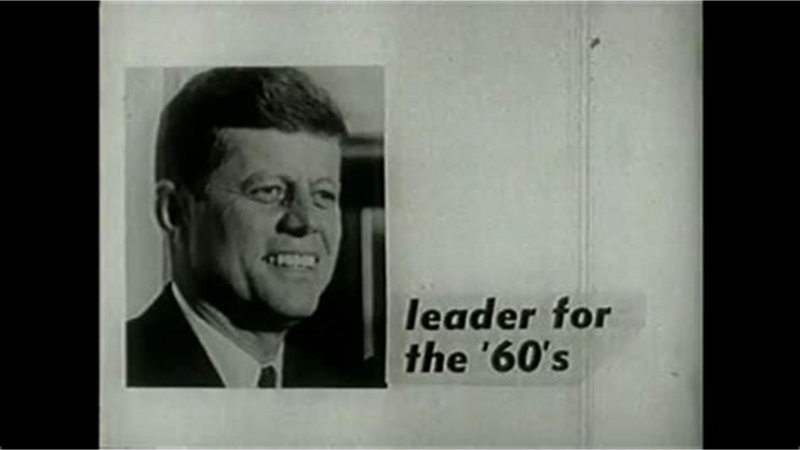
Source: grunch.com 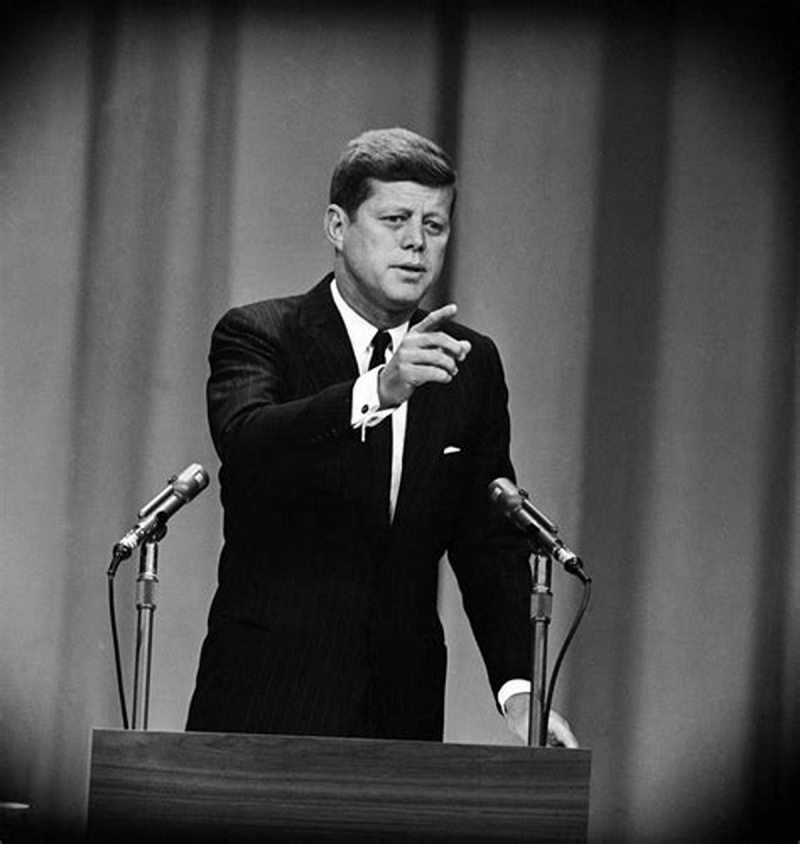
Source: Madison.com -
When Kennedy began office, the United States was in the midst of a recession. Under his own executive anti recessionary acceleration program, he implemented a variety of steps to strengthen the economy. The most important tax reforms since the New Deal were implemented, including the creation of a new investment tax credit. From early 1961 to late 1963, when Kennedy was slain, GDP increased by an average of 5.5 percent per year, compared to only 2.2 percent per year during his predecessor Eisenhower's administration. In addition, inflation stayed stable at roughly 1%, industrial production increased by 15%, and unemployment declined. This rate of growth lasted until 1969, and it has never been matched for such a long time.
Kennedy increased the national debt by $23 billion between 1961 and 1963. It was an increase of 8% from the $289 billion debt level at the end of Eisenhower's last budget. His deficit spending put an end to the slump and ushered in a period of growth that lasted until 1970. When compared to other presidents, it didn't contribute much to the US debt. JFK campaigned for tax reduction in addition to budget cuts. In a speech to the Economic Club of New York in December 1962, he advocated for more educational investment. He would also lower taxes and expand research and development. He intended to reduce the income tax rate from 91 percent to 65 percent at the time.
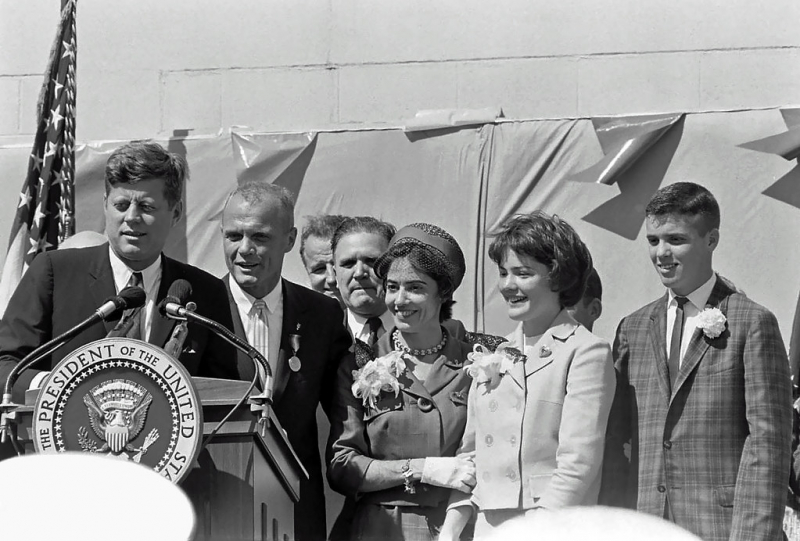
Source: Flickr 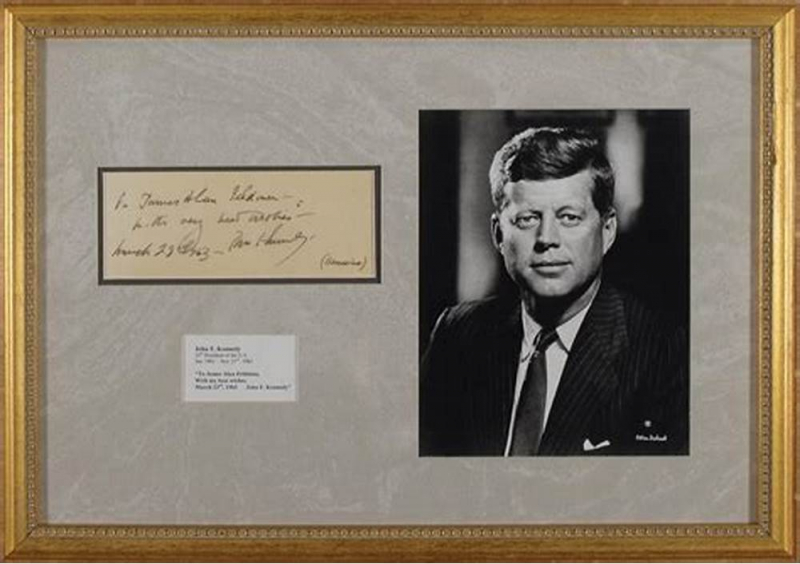
Source: autographusa.com -
By Executive Order 10924, President John F. Kennedy founded the Peace Corps on March 1, 1961. It was a program in which American volunteers aided developing countries in areas including education, farming, health care, and building. By March 1963, the organization had grown to 5,000 members, and by the following year, it had grown to 10,000. Around 220,000 Americans have joined the Peace Corps since its inception in 2016, serving in 140 countries. Its projects include eradicating malaria in Africa and responding to crises such as the slaughter in Rwanda in 1994.
By the end of 1963, there were 7,000 volunteers serving in 44 countries. The Peace Corps reached its pinnacle in 1966, with over 15,000 volunteers serving in 52 nations. Budget cuts later reduced the number of Peace Corps volunteers, but today more than 7,000 Peace Corps volunteers are serving in over 60 countries. Since 1961, more than 240,000 Americans have joined the Peace Corps, serving in 142 nations.
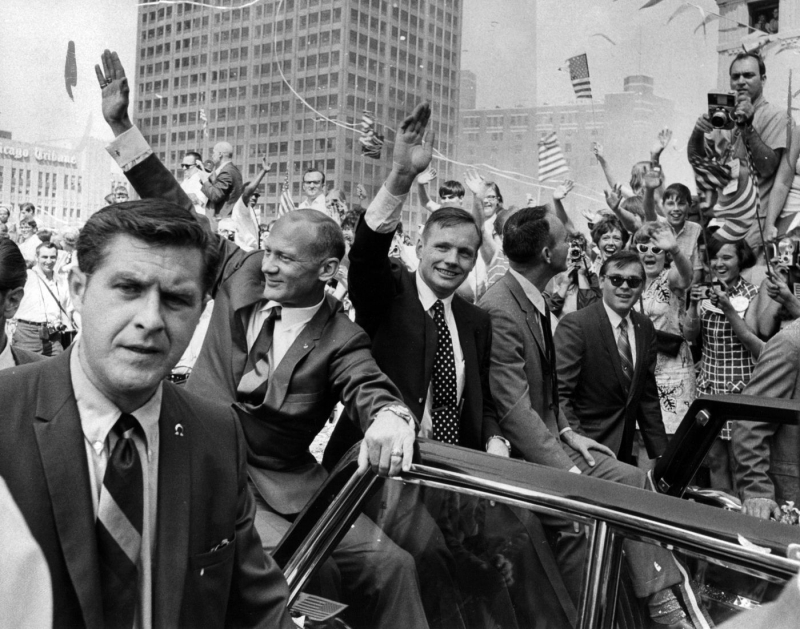
Source: Chicago Tribune 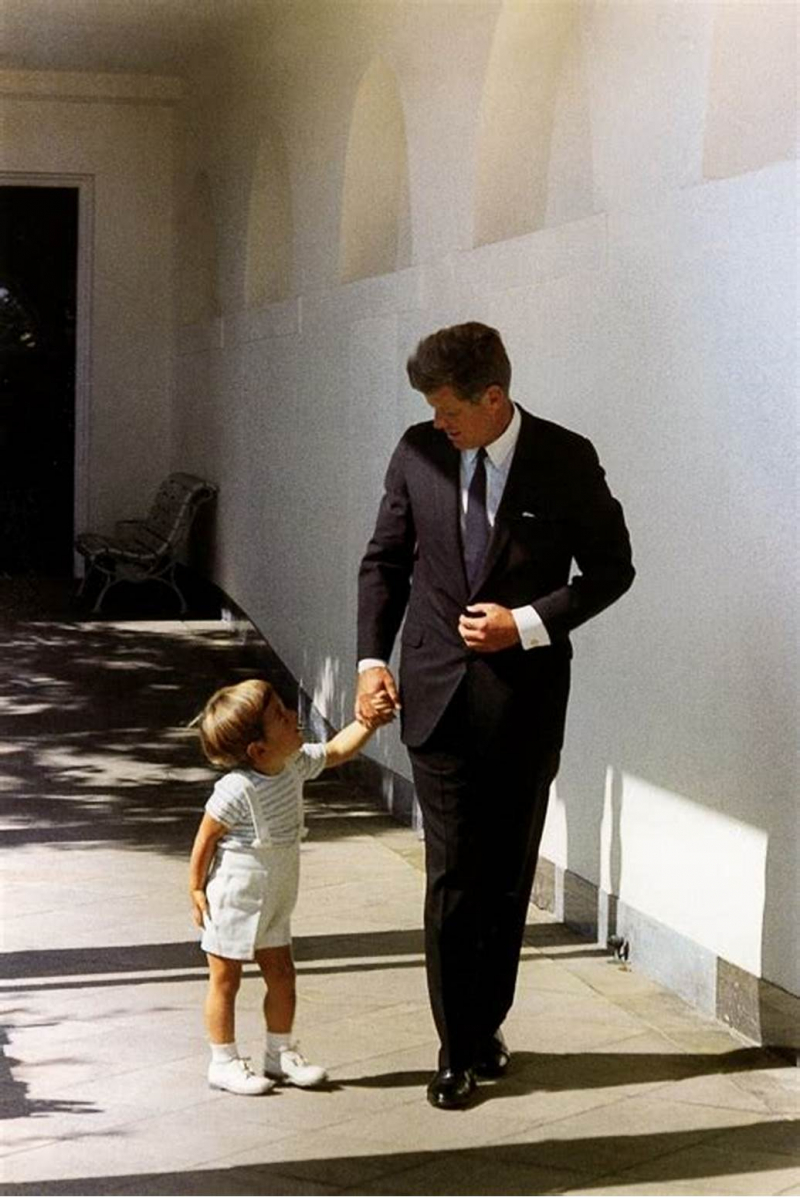
Source: Tumblr -
In 1961, President John F. Kennedy established the Alliance for Progress with the goal of establishing economic cooperation between the United States and Latin America. Between 1962 and 1967, the United States contributed $1.4 billion per year to Latin America's growth. In the 1960s, Latin America's regional output per capita increased by 2.6 percent, beating the program's aim of 2.5 percent. Adult illiteracy was reduced, and housing, financial institutions, tax laws, and administration were improved. The Alliance for Progress had flaws and by the 1970s, it had failed, owing to Latin American countries' refusal to adopt critical reforms and presidents after Kennedy's lack of support for the initiative.
In May 1961, Congress approved a $500 million initial grant in response to Kennedy's request. During the next ten years, billions of dollars were spent on the Alliance, but its success was sporadic, and there were numerous reasons why the initiative failed. Because it smelt of socialism, American politicians were hesitant to grant cash for land redistribution schemes in Latin America. The majority of the monies were funneled towards pet projects by Latin American elites, who profited themselves while doing little to help the great mass of their people. The Alliance's attempt to introduce democracy to Latin America was clearly a failure: by the time the program ended in the early 1970s, 13 governments in the region had been replaced by military control.
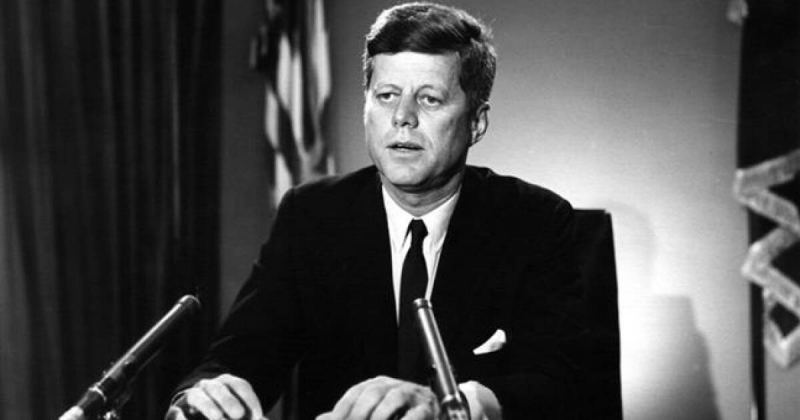
Source: wgbh.org 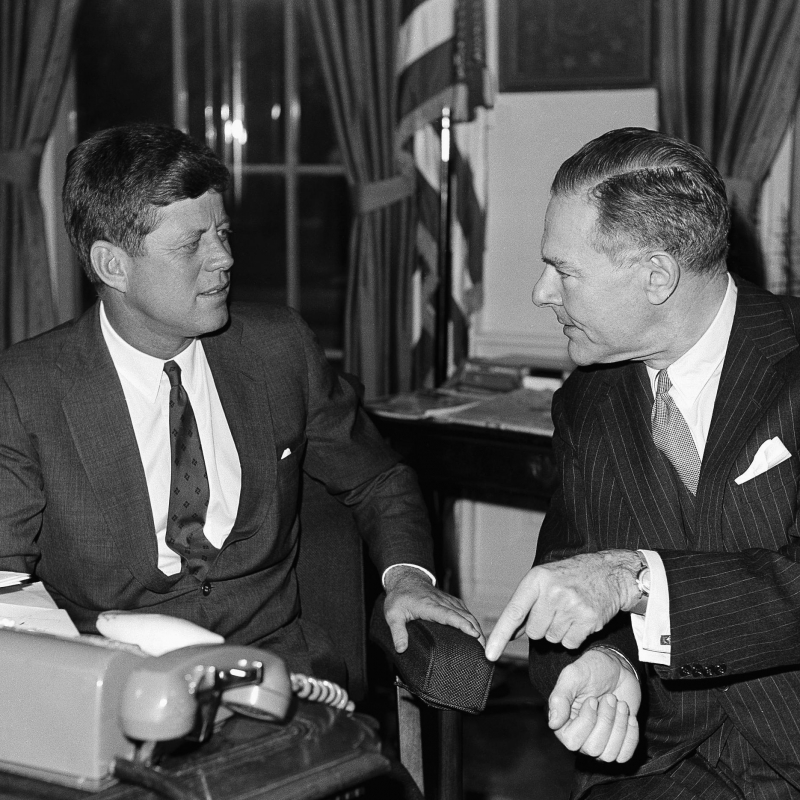
Source: WBUR -
Through his lectures, Kennedy advocated for racial integration and civil rights. He enacted Executive Order 10925 on March 6, 1961, requiring government contractors to take affirmative action to ensure that all employees, regardless of race, creed, color, or national origin, are treated fairly. In November 1962, he issued Executive Order 11063, which prohibited segregation in government-supported housing. JFK gave his iconic civil rights address on June 11, 1963, in which he urged Americans to see civil rights as a moral cause. The landmark Civil Rights Act of 1964 included his proposal to guarantee equal access to public schools and other facilities, as well as better protection of voting rights.
Many people believe that Kennedy was more of a political realist than a visionary. The fact that he voted against Eisenhower's 1957 Civil Rights Act supports this. The path from bill to law threatens to split the Republican Party. Kennedy planned to run for President of the United States as a Democrat in the 1960 election. He realized that following the party line and rejecting the bill would help his chances. In 1960, Kennedy led the Democratic Party to victory over Richard Nixon.
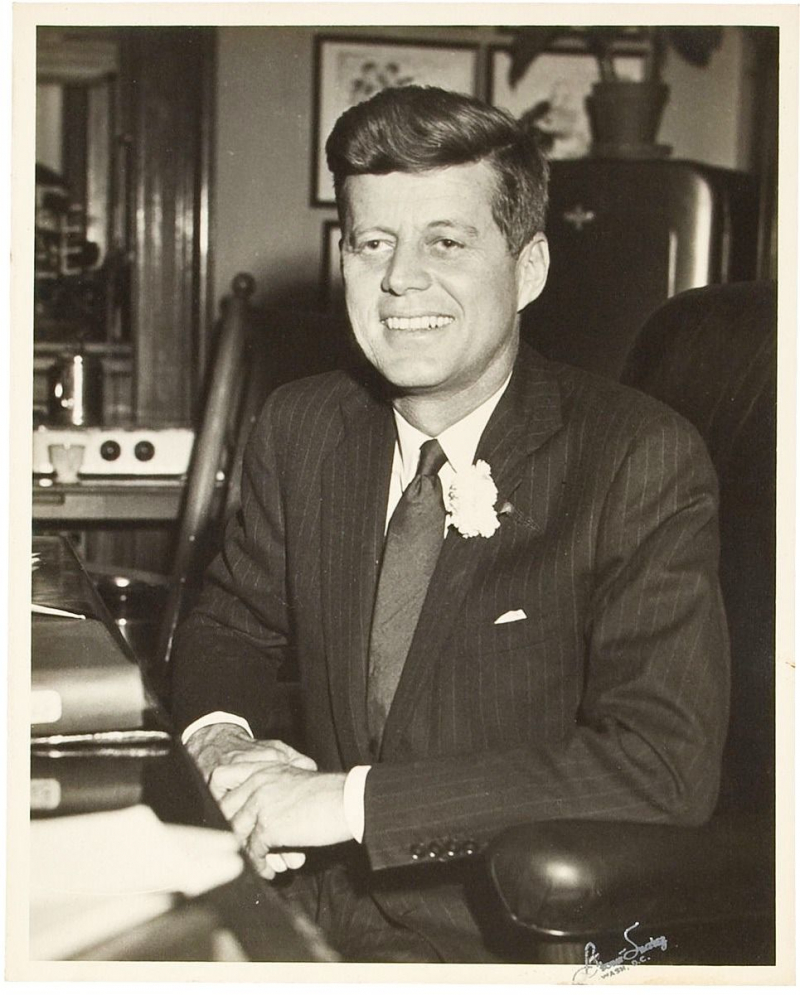
Source: Pinterest 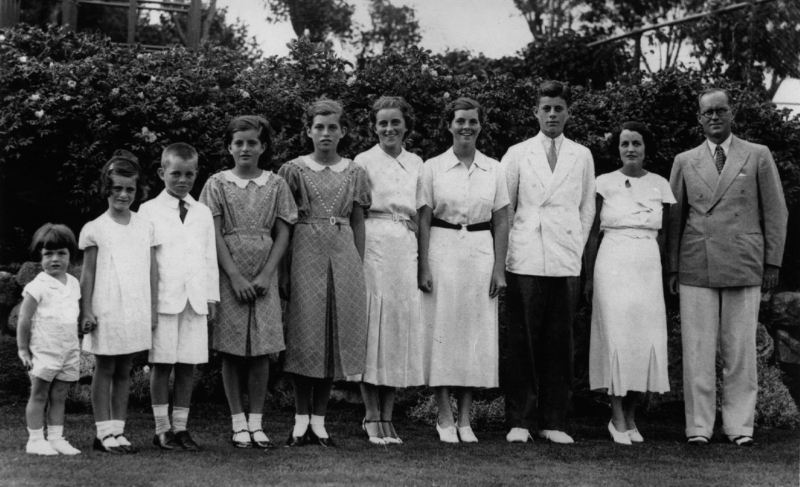
Source: Today -
John F. Kennedy signed the Equal Pay Act of 1963 into law on June 10, 1963, to eliminate salary disparities based on gender. It made changes to the 1938 Fair Labor Standards Act. The EPA was a significant step toward closing the wage disparity between men and women. Although the EPA's equal pay for equal labor goals has not been fully met, women's earnings have increased considerably in comparison to men's since its inception.
JFK also recommended reforming American immigration policy, which resulted in the 1965 Immigration and Nationality Act, which replaced the quota system based on national origins with a preference system based on the immigrant's abilities and familial ties to US citizens. In 1963, President John F. Kennedy signed the Equal Pay Act, this was a huge step toward closing the income disparity between men and women. Even though it appeared to be a great idea on paper, the Equal Pay Act did not achieve full pay equality; yet, it did assist women to earn more money than they did prior to the act's passage.
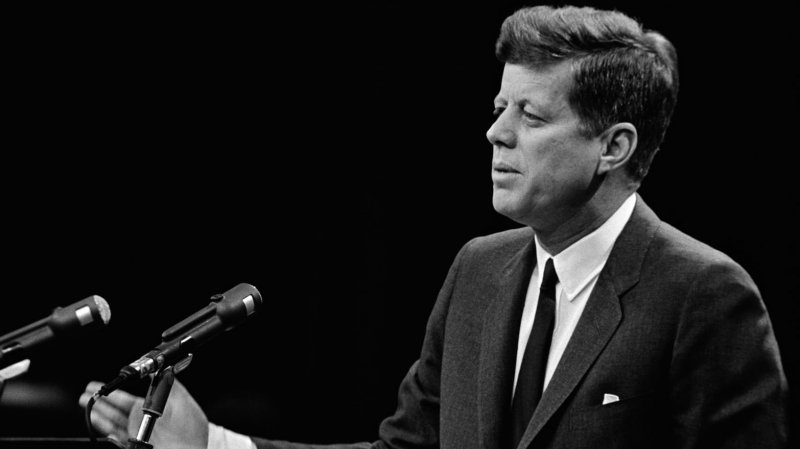
Source: The Daily Beast 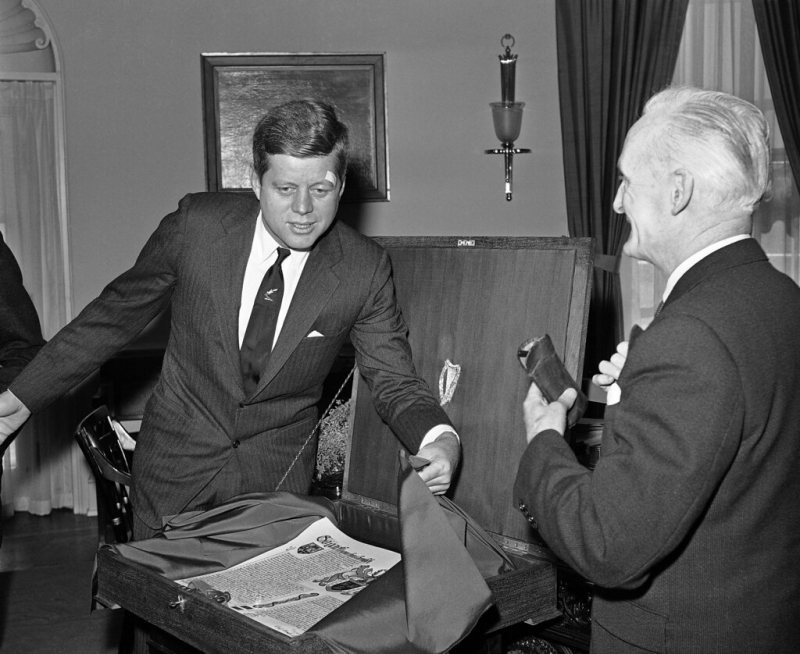
Source: Flickr











